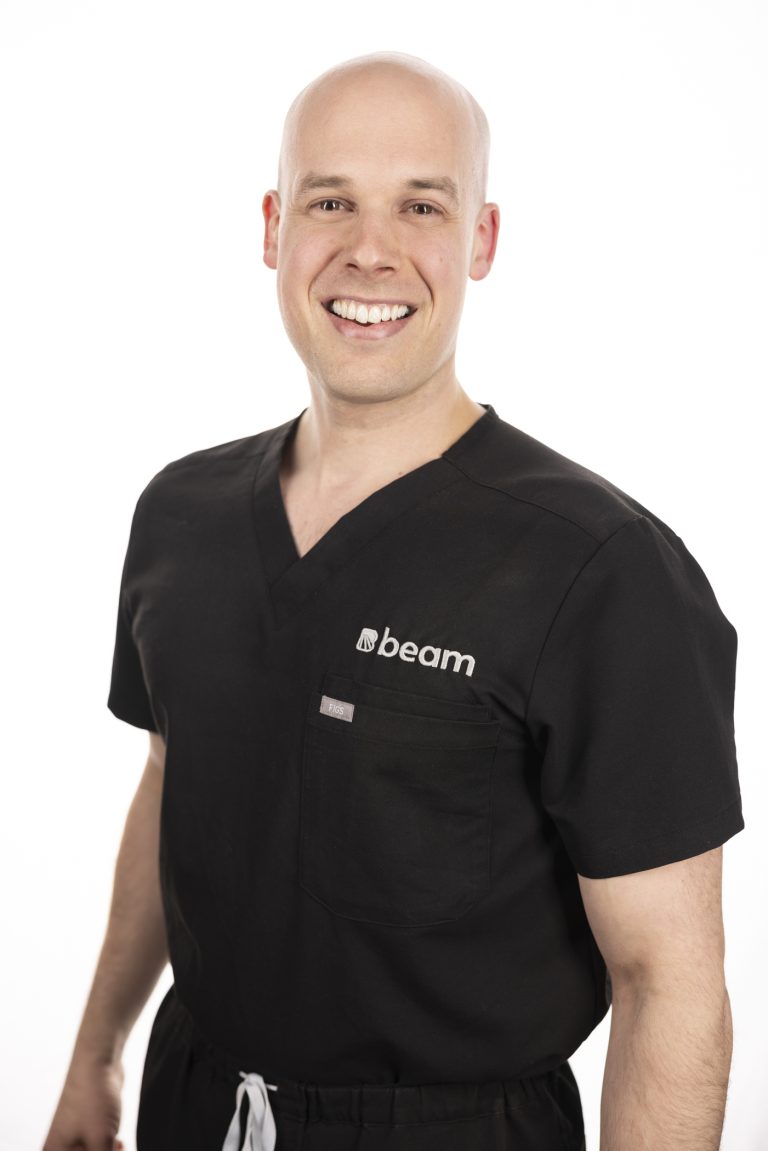MRI Screening Scans
Additional MRI Screening Options
Through The Beam Health Assessment Program
What is a MRI?
MRI is a diagnostic tool that utilizes a powerful magnetic field, radio waves, and a computer to produce high quality images of internal body structures. This non-invasive procedure is regarded as an incredibly valuable tool for physicians to locate tumors and diagnose diseases as well as soft tissue injuries. To create these images, MRI machines temporarily realign the water molecules in your body. This allows those atoms to produce a signal when exposed to radio waves. This is how the images are produced.
What is a 3T MRI?
Beam Radiology is host to a 3T MRI machine, one of only a few in the province.
3T MRI, also known as 3 Tesla MRI, is a particularly advanced type of magnetic resonance imaging (MRI), that produces more detailed images than the typical MRI. The 3T MRI has a more powerful magnet and the ability to produce superior quality images. The MRI at Beam is also a wide-bore MRI, which means there is more space for the patient within the machine. With this scanner we are able to provide exceptional quality, consistent result, and superior detection ability.
For patients with claustrophobia and/or anxiety
Some patients who suffer from anxiety or claustrophobia may experience a level of discomfort while the exam is being performed. To help alleviate this, Beam utilizes a 3T Wide Bore MRI. This means that there is more space within the machine, which can help with feelings of claustrophobia.
If you think this, or feelings of anxiety may be an issue for you, please let us know prior to your appointment as we can discuss options that can improve your experience. We are here to help.
* CT of the abdomen/pelvis can help diagnose disease of the internal organs, blood vessels, stomach, small bowel, and skeleton of the abdomen/pelvic region
Pricing
* arms, knees, ankles, and feet excluded
Interested in booking a MRI screen?
FAQ
MRI generally requires no specific preparation. You can eat and drink normally and continue any medications you regularly take. There are a few specialized MRIs that may require preparation, but if that is the case, you will be instructed of this prior to your appointment. At the time of your appointment, you will be asked to remove anything with metal, and you may be directed to change into a gown for the scan. You will be asked to arrive 30 minutes prior to your appointment.
When you have reached the examination room, you will be placed on a motorized table that slides in and out of the MRI machine. When the machine is operational, you are the only person in the room. You are still able to communicate with the technologist and they are able to see the exam from a separate room.
When you are inside the MRI machine, a strong magnetic field is created and radio waves are targeted at your body. During your exam, you will not feel the magnetic field or radio waves, but you will hear a repetitive tapping or thumping noise. Earplugs can be given to patients if requested. During their MRI, patients may be asked to answer questions or complete small tasks with their fingers or toes as this may be useful in capturing the images requested.
Patients can expect their MRI to last anywhere from 15 minutes to 1 hour.
As MRI machines utilize powerful magnets, metal objects on or in the body may be affected. Please be sure to discuss any device, metal, or shrapnel in your body with your doctor, Beam care coordinator, and MRI technologist prior to your exam. If your implant or device came with an information card, please bring this to your appointment.
Examples of implants NOT compatible with MRI scanners include:
- Ear implants or hearing aides
- Brain aneurysm clips
- Metal coils or stents inserted in blood vessels
- Neurostimulators or implanted programmable devices
- Cardiac defibrillators and pacemakers
Other devices we ask that you discuss with your doctor, Beam care coordinator, and MRI technologist include:
- Artificial heart valves
- Implanted drug infusion ports or pumps
- Artificial limbs or joint prosthesis
- Metal pins, screws, plates, stents, or staples
- IUDs
- In general, please make us aware of any foreign object or device within your body.
As MRI’s utilize powerful magnets, metal or electronic objects inside the body may move from their original position or distort the images captured. The dark ink in tattoos is also known to distort images produced during your MRI. It is important to discuss any pre-existing health conditions prior to your exam to ensure an MRI is right for you.

Your Health is Important to Us
If you have any questions or would like to learn more, please
contact us. We look forward to supporting your journey to better health.

